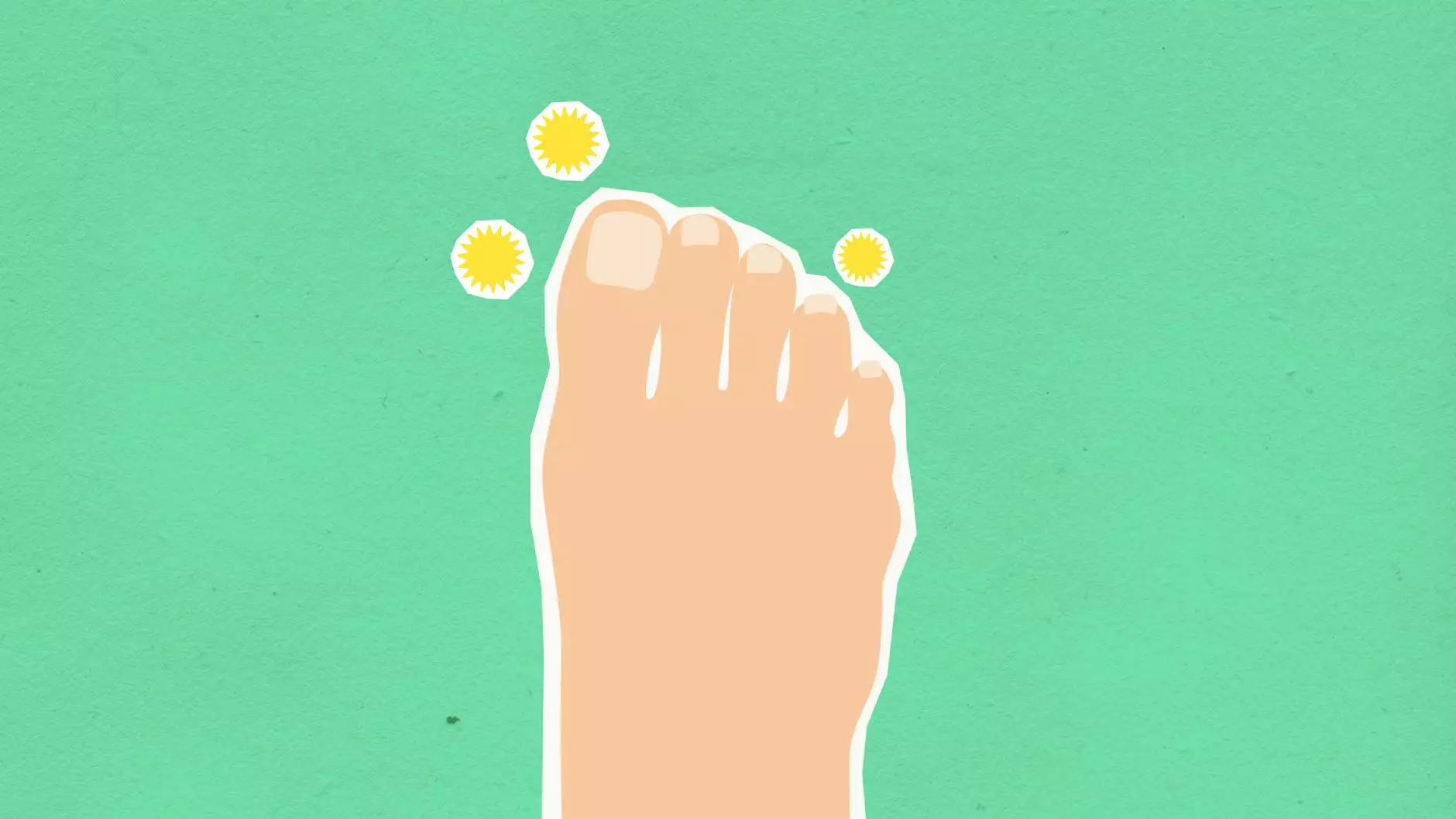Treating Fungal Nail: The Ultimate Guide

The Foot Practice: Your Trusted Podiatrists for Foot Care
Welcome to The Foot Practice, a reputable authority in the field of foot care. Our team of experienced podiatrists is dedicated to providing high-quality treatments and services to help you maintain healthy feet. In this comprehensive guide, we will delve deep into the topic of treating fungal nails, giving you valuable insight and expert advice to effectively combat this common foot condition.
Understanding Fungal Nail Infections
Fungal nail infections, also known as onychomycosis, are a prevalent condition that affects millions of people worldwide. This condition occurs when fungi, such as dermatophytes, enter the nail bed, leading to discoloration, thickening, brittleness, and crumbling of the nails. It can be both unsightly and uncomfortable, causing a great deal of distress for those affected.
Common Causes of Fungal Nail Infections
There are several factors that can contribute to the development of fungal nail infections. These include:
- Prolonged exposure to moist or humid environments
- Wearing tight, non-breathable shoes
- Walking barefoot in public areas like swimming pools or locker rooms
- Having a weakened immune system
- Previous injury or damage to the nail
- Poor foot hygiene
Effective Treatments for Fungal Nail Infections
At The Foot Practice, we offer a range of effective treatments for fungal nail infections, personalized to each patient's specific needs. Our skilled podiatrists will assess your condition and recommend the most suitable treatment options.
1. Topical Antifungal Medications
One of the most common treatment approaches for mild to moderate fungal nail infections is the use of topical antifungal medications. These medications are available as creams, ointments, or nail lacquers. They work by directly targeting the fungi and inhibiting their growth, gradually leading to the regrowth of healthy nails.
2. Oral Antifungal Medications
In cases of more severe or recurrent infections, oral antifungal medications may be prescribed. These medications are taken by mouth and work by attacking the fungi from within the body. Oral antifungal treatments have shown promising results in resolving fungal nail infections, but they may require a longer treatment duration.
3. Laser Therapy
For patients seeking a non-invasive and painless treatment option, we offer laser therapy at The Foot Practice. This innovative procedure targets the fungi present in the nails, effectively eradicating the infection. Laser therapy is a safe and highly effective treatment that requires no downtime, allowing you to resume your daily activities immediately after.
Prevention and Self-Care Tips
While prevention is always better than cure, there are several measures you can take to reduce the risk of developing fungal nail infections:
- Keep your feet clean and dry, paying special attention to the areas between the toes.
- Wear moisture-wicking socks and breathable footwear.
- Use anti-fungal powders or sprays in your shoes to minimize moisture and fungal growth.
- Avoid sharing personal items such as towels, socks, or shoes with others.
- Regularly trim nails and keep them at a moderate length.
- Protect your feet in public areas by wearing flip-flops or sandals.
Trust The Foot Practice for Expert Foot Care
When it comes to treating fungal nail infections, it's essential to consult a reliable podiatrist who has the expertise and experience to provide effective solutions. At The Foot Practice, we pride ourselves on being a leading authority in foot care. Our dedicated team is determined to help you achieve healthy, beautiful feet.
Contact us today to schedule a consultation and take the first steps towards treating and preventing fungal nail infections. Trust The Foot Practice for all your foot care needs!
Disclaimer: This article is for informational purposes only and is not intended to replace the advice of a medical professional. It is always recommended to consult with a qualified podiatrist for diagnosis, treatment, and personalized medical advice.
body { font-family: Arial, sans-serif; margin: 20px; line-height: 1.6; } h1 { font-size: 32px; margin-bottom: 20px; } h2 { font-size: 26px; margin-top: 40px; margin-bottom: 20px; } h3 { font-size: 20px; margin-top: 30px; margin-bottom: 15px; } p { font-size: 18px; margin-bottom: 15px; } ul, ol { font-size: 18px; margin-bottom: 15px; margin-left: 40px; } strong { font-weight: bold; } hr{ border-top: 1px solid #ccc; margin-bottom: 40px; }Treat Fungal Nail








